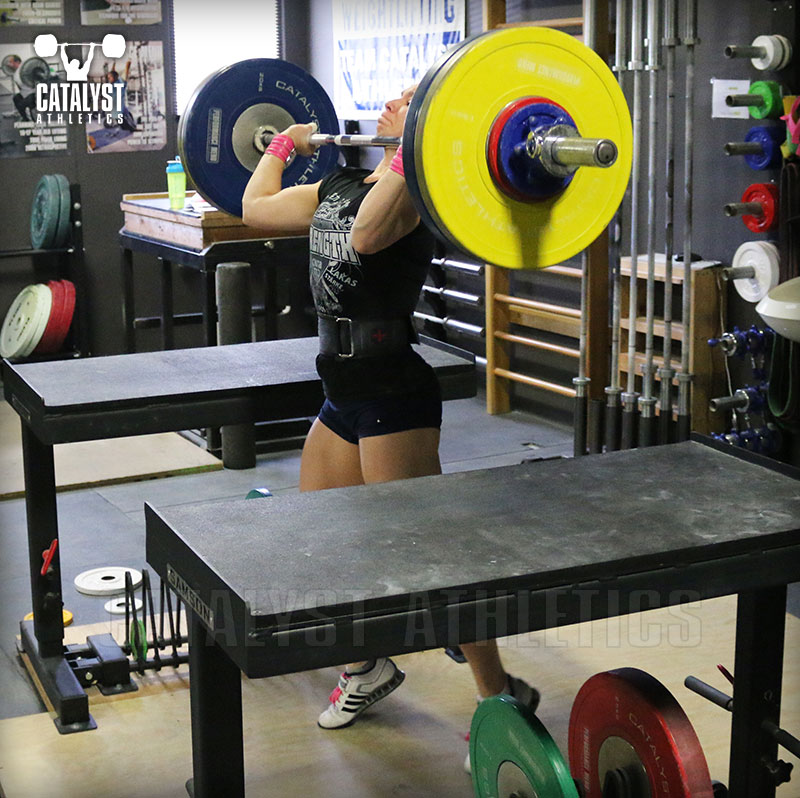Ask Greg: Issue 157

Christoffer Asks: Hey, I was wondering how much your body mass matters in weightlifting and how much of an impact a few less or extra pounds can make on your performance. I also wonder if you should have other priorities about your weight if you are for example training crossfit (guess who's training crossfit?).
Greg Says: How important your bodyweight is depends on how serious you are about your sports, whether weightlifting or CrossFitting or both. If you do them purely for enjoyment, bodyweight shouldn’t be a concern—weigh whatever you weigh, or weigh whatever you want to weigh to feel and/or look good, according to your priorities.
In CrossFit, of course there are no weight categories for competition, so in that sense bodyweight doesn’t matter. But in practical terms, it does—you’re basically trying to find the balance between being able to handle your own bodyweight well in things like gymnastics and endurance events, while also being strong enough for events with heavy lifting. If you get really skinny for the sake of being better at the former, you’re going to suffer when it comes to the latter, and vice versa. For men, the ideal seems to be right around that 185lb/85kg mark (for a 5’9” – 5-10” guy).
In weightlifting, bodyweight is very important relative to height. In simple terms, you want to be as short for your weight class as possible. The shorter you are relative to your competitors, the more of a leverage advantage you have. There are always outliers who are much taller and thinner than their competition and still do well, but these are exceptions.
Bodyweight differences in weightlifting specifically can make enormous differences in performance, although the clean & jerk will usually be affected more than the snatch. A single pound or two can mean several kilos in the clean & jerk and squats.
Of course, body composition has to be considered as well. If you’re 5’6”, you don’t want to become a 105kg lifter by moving up to 30% body fat—that’s not going to contribute to your ability to lift in any significant way. But if you’re 5’10” and 88kg, you would definitely want to try to move up to 94kg with the best body composition you can manage. How much weight you can gain or lose and establish or maintain reasonably low body fat levels will depend on your genetic predisposition more than anything, so that also needs to be taken into account.
Finally, you need to consider how you feel at any given bodyweight. Some people notice dramatic differences with just a few pounds increase or decrease in bodyweight; some don’t really notice. If being bigger makes you feel slow and unhealthy, it’s probably not a good choice; if being smaller makes you feel weak and brittle, likewise, it’s not a good choice.
Greg Says: How important your bodyweight is depends on how serious you are about your sports, whether weightlifting or CrossFitting or both. If you do them purely for enjoyment, bodyweight shouldn’t be a concern—weigh whatever you weigh, or weigh whatever you want to weigh to feel and/or look good, according to your priorities.
In CrossFit, of course there are no weight categories for competition, so in that sense bodyweight doesn’t matter. But in practical terms, it does—you’re basically trying to find the balance between being able to handle your own bodyweight well in things like gymnastics and endurance events, while also being strong enough for events with heavy lifting. If you get really skinny for the sake of being better at the former, you’re going to suffer when it comes to the latter, and vice versa. For men, the ideal seems to be right around that 185lb/85kg mark (for a 5’9” – 5-10” guy).
In weightlifting, bodyweight is very important relative to height. In simple terms, you want to be as short for your weight class as possible. The shorter you are relative to your competitors, the more of a leverage advantage you have. There are always outliers who are much taller and thinner than their competition and still do well, but these are exceptions.
Bodyweight differences in weightlifting specifically can make enormous differences in performance, although the clean & jerk will usually be affected more than the snatch. A single pound or two can mean several kilos in the clean & jerk and squats.
Of course, body composition has to be considered as well. If you’re 5’6”, you don’t want to become a 105kg lifter by moving up to 30% body fat—that’s not going to contribute to your ability to lift in any significant way. But if you’re 5’10” and 88kg, you would definitely want to try to move up to 94kg with the best body composition you can manage. How much weight you can gain or lose and establish or maintain reasonably low body fat levels will depend on your genetic predisposition more than anything, so that also needs to be taken into account.
Finally, you need to consider how you feel at any given bodyweight. Some people notice dramatic differences with just a few pounds increase or decrease in bodyweight; some don’t really notice. If being bigger makes you feel slow and unhealthy, it’s probably not a good choice; if being smaller makes you feel weak and brittle, likewise, it’s not a good choice.
| Greg Everett is the owner of Catalyst Athletics, publisher of The Performance Menu Journal and author of Olympic Weightlifting: A Complete Guide for Athletes & Coaches, Olympic Weightlifting for Sports, and The Portable Greg Everett, and is the writer, director, producer, editor, etc of the independent documentary American Weightlifting. Follow him on Facebook here. |
Search Articles
Article Categories
Sort by Author
Sort by Issue & Date
Article Categories
Sort by Author
Sort by Issue & Date

